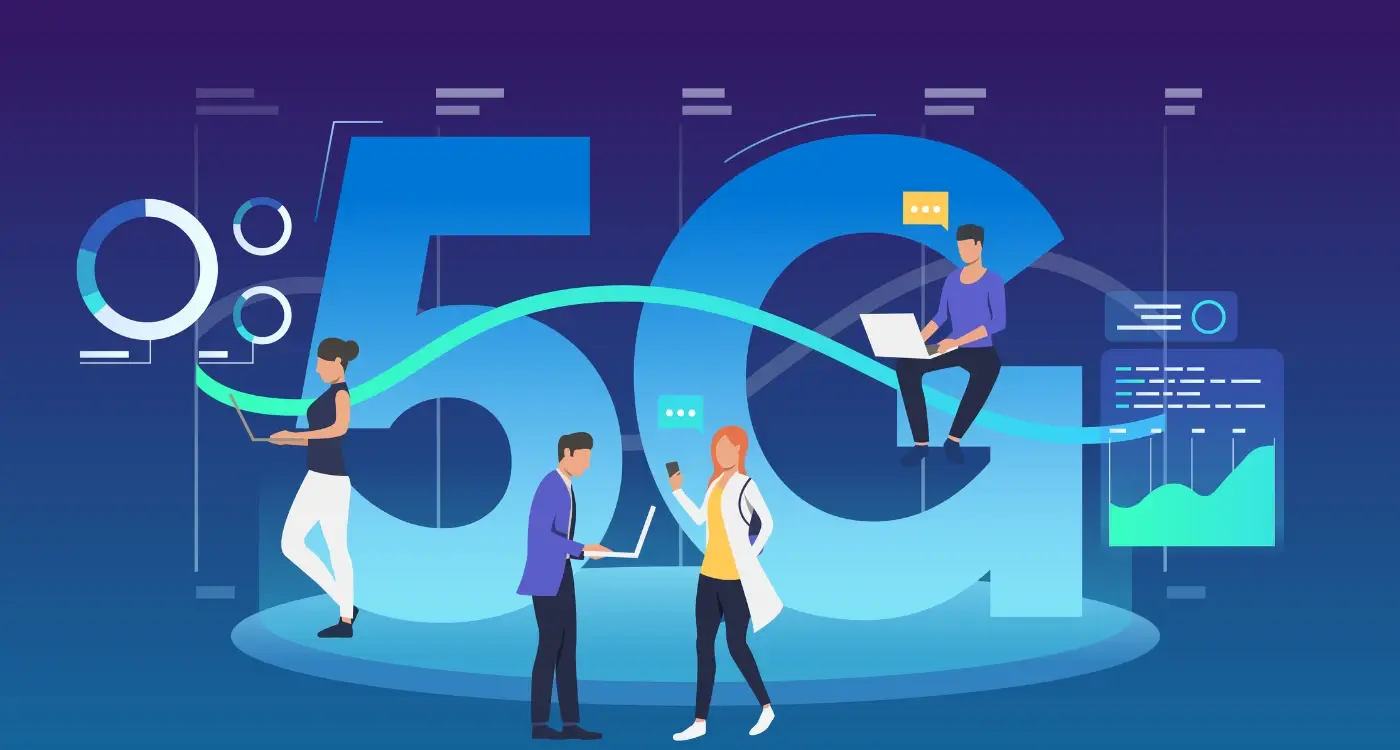How Much Does It Really Cost To Build An App?
I've been working in mobile app development for over eight years now, and if there's one question that comes up in almost every single conversation with new clients, it's this: "How much does it really cost to build an app?" The short answer? Well, there isn't one. App development cost can range from a few thousand pounds to hundreds of thousands—sometimes even millions for the really complex stuff.
The thing is, asking "how much does an app cost" is a bit like asking how much a house costs. A one-bedroom flat in Hull will cost you very differently than a five-bedroom mansion in London, right? Mobile app cost works the same way. The features you want, who builds it, how complex it gets—all of these things dramatically change your app development budget.
Every app is different, and every budget should reflect that reality
What I've learned after building apps for everyone from scrappy startups to massive brands is that most people don't just want to know the price—they want to understand why apps cost what they do. That's exactly what we're going to cover in this guide. No fluff, no sales pitches, just honest insights about what really drives app development costs and how you can plan your budget smartly.
What Makes App Costs So Different
I get asked this question almost daily—why does one app cost £5,000 and another cost £50,000? It's a fair question and one that deserves a proper answer. The truth is, apps are a bit like houses; you can build a simple one-bedroom flat or a mansion with all the bells and whistles, and the price reflects what you're getting.
The main reason costs vary so wildly comes down to what your app actually does. A basic app that displays information is worlds apart from one that processes payments, sends notifications, and syncs data across multiple devices. Each feature you add requires more development time, more testing, and often more complex backend systems to support it all.
Platform Choices Matter
Building for just iPhone? That's one thing. Want Android too? You've just doubled your development time in most cases. Some agencies will tell you about cross-platform solutions that can help reduce costs here, but there are always trade-offs to consider.
Design Complexity
Then there's design—simple, clean interfaces take time to get right, but custom animations and unique user experiences take even longer. I've seen projects where the design phase alone took three months because the client wanted something truly special. That level of polish costs money, but it can make all the difference to your users.
The Big Three Things That Drive Your Budget
After building dozens of apps—some simple, some complex, and some that made me question my life choices—I've noticed three main factors that determine whether your app development cost will be reasonable or eye-watering. These aren't small details that might add a few hundred pounds here and there; these are the big decisions that can swing your budget by thousands.
What Your App Actually Does
The features you choose are the biggest driver of cost. A basic app that shows information costs far less than one that handles payments, sends notifications, or connects to other services. Every feature needs to be designed, built, and tested—and that all takes time.
Which Platforms You Target
Building for iPhone only costs less than building for both iPhone and Android. Building a native app costs more than a web-based app but performs better. Each choice has trade-offs that affect your mobile app cost significantly.
- iOS only: Lower initial cost
- Android only: Slightly higher due to device variety
- Both platforms: Nearly doubles development time
- Web app: Cheapest option but limited functionality
Start with one platform first. You can always expand later once you've proven your app works and people want it.
The third factor is how polished you want everything to look and feel. A basic design costs less than custom animations and fancy interactions, but remember—users notice the difference.
Simple Apps vs Complex Apps—Understanding the Difference
Right, let's get straight to the point. When I'm talking to clients about their app ideas, I can usually tell within the first ten minutes whether we're looking at a simple build or something that's going to keep my development team busy for months. The difference isn't always obvious though—what seems simple on the surface can hide some serious complexity underneath.
What Makes an App Simple
Simple apps do one thing well. Think of a basic calculator, a simple note-taking app, or a basic photo filter. They don't need to connect to loads of different systems, they don't store masses of user data, and they certainly don't need fancy features like real-time chat or payment processing. Most simple apps can be built in a few weeks with a small team.
When Things Get Complex
Complex apps are a different beast entirely. We're talking about apps that need user accounts, payment systems, real-time updates, complex databases, and integration with third-party services. Social media apps, banking apps, or anything involving live streaming—these all fall into the complex category.
| Simple Apps | Complex Apps |
|---|---|
| Basic functionality | Multiple integrated features |
| Minimal data storage | Complex databases |
| Few external connections | Multiple API integrations |
| 2-8 weeks development | 3-12+ months development |
The cost difference between these two can be enormous—we're talking thousands versus tens of thousands of pounds. That's why getting clear on your app's complexity early on is so important for budgeting.
Who Builds Your App Matters More Than You Think
Here's something that might surprise you—the team you choose to build your app can completely change your app development cost. I've seen identical app ideas with budgets that differ by tens of thousands of pounds, and it all comes down to who's doing the work.
You've got three main options: freelancers, agencies, or building an in-house team. Freelancers are usually the cheapest upfront, but managing multiple people across different time zones can be a nightmare. In-house teams give you complete control but cost a fortune in salaries and benefits before you've even started building.
Experience Changes Everything
A developer who's built fifty apps will work much faster than someone building their second one. They'll spot problems before they happen and know the shortcuts that actually work. Yes, experienced developers cost more per hour, but they often deliver faster and with fewer bugs.
The most expensive mistake you can make is choosing the cheapest option without considering the quality of work you'll receive
Location matters too—developers in London will charge more than those in Manchester, and both will cost more than offshore teams. But remember, cheap can become very expensive when you need to rebuild everything from scratch.
Hidden Costs That Catch Everyone Out
After eight years of building apps, I can tell you that the biggest shock for clients isn't the development cost—it's everything else that comes after. You budget for building the app, but then reality hits and suddenly there are all these extra expenses you never saw coming.
App store fees are just the beginning. Apple takes 30% of your revenue and Google does the same. That's a big chunk if your app makes money. Then there's hosting costs for your backend servers, which can range from £20 a month for a simple app to thousands for something with lots of users.
The Ongoing Expenses
- App store developer accounts (£79 yearly for Apple, £20 one-time for Google)
- Server hosting and database costs
- Third-party service fees (payment processing, analytics, push notifications)
- SSL certificates and security tools
- App updates and maintenance
- Marketing and user acquisition
Here's what really gets people though—maintenance costs. Your app won't just work forever without updates. Operating systems change, bugs appear, and users expect new features. Most agencies charge 15-20% of the original development cost annually just to keep things running smoothly.
The smart move? Budget an extra 50% on top of your development cost for the first year. Trust me, you'll need it.
Ways to Save Money Without Cutting Corners
Here's the thing about app development cost—you don't always need to spend a fortune to get something brilliant. I've worked with clients who've built incredible apps on tight budgets, and others who've thrown money at projects that never saw the light of day. The difference? Smart choices, not big cheques.
Start with what I call the "must-have versus nice-to-have" approach. Your app probably doesn't need every feature on day one. Build your core functionality first, then add the bells and whistles later. This isn't cutting corners; it's being strategic about your mobile app cost.
Consider starting with one platform (iOS or Android) rather than both. You can always expand later once you've proven your concept works.
Smart Development Choices
Choose your technology stack wisely. Cross-platform frameworks can cut development time significantly without sacrificing quality. Your users won't know the difference, but your app development budget certainly will.
- Use existing APIs instead of building everything from scratch
- Leverage proven design patterns rather than reinventing the wheel
- Consider hybrid approaches for non-critical features
- Plan your features in phases to spread costs over time
The real secret? Work with developers who understand your vision and aren't trying to oversell you on features you don't need. Good agencies will help you prioritise—they want your project to succeed just as much as you do.
Conclusion
Building an app doesn't have to be a mystery wrapped in endless surprises—at least not when it comes to the money side of things. After eight years of helping businesses bring their app ideas to life, I can tell you that the biggest shock isn't usually the final price tag; it's how much the price can vary based on decisions you might not even realise you're making.
The truth is, there's no magic number I can give you. A simple app might cost you £15,000 whilst a complex one could easily hit £150,000 or more. But here's what I've learned: the businesses that succeed aren't always the ones with the biggest budgets—they're the ones who understand what they're paying for and why.
Whether you choose a freelancer, an agency like us, or try to build it yourself, the key is being honest about what you actually need right now versus what would be nice to have later. Start with your core features, pick the right team for your budget, and always—always—keep some money aside for those unexpected costs that seem to pop up on every project.
Your app doesn't need to be perfect from day one. It just needs to solve a real problem for real people.
Share this
Subscribe To Our Learning Centre
You May Also Like
These Related Guides

How Do I Avoid Blowing All My Money On App Development?

How Do I Budget For Long Term Mobile App Maintenance?



